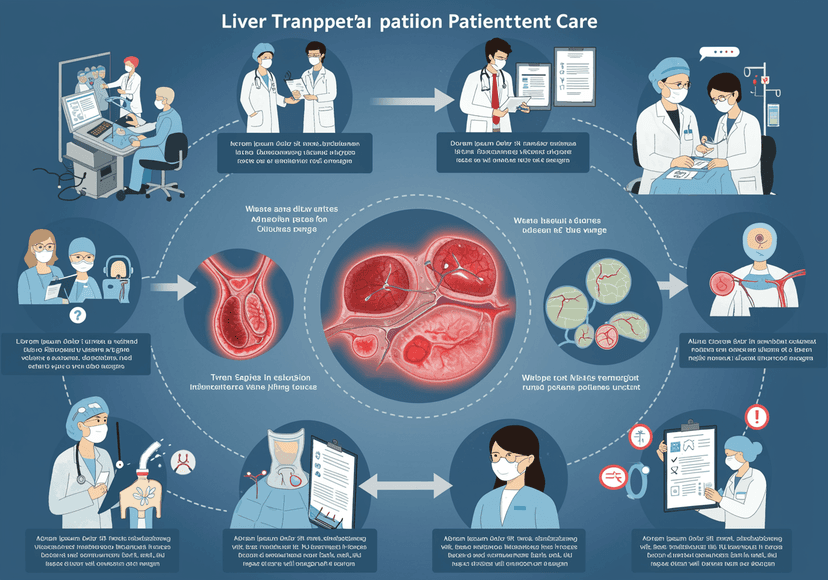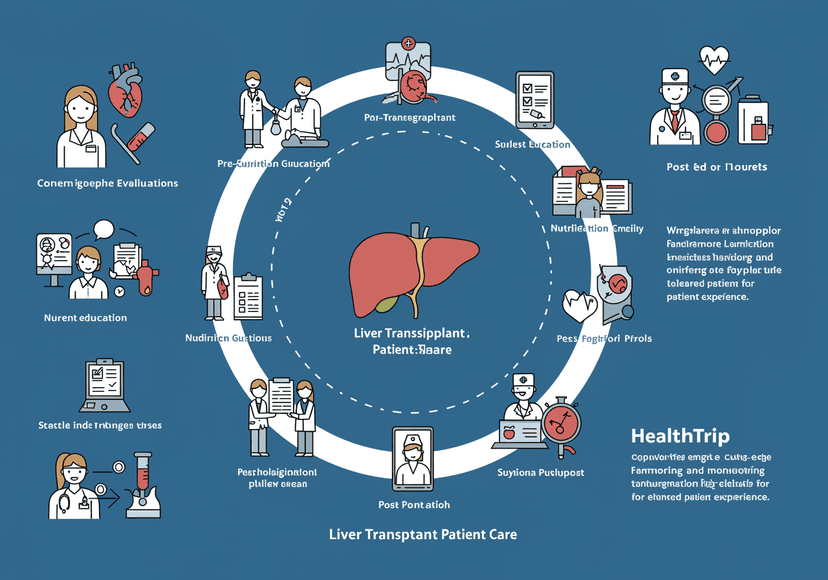
TMVR: A Minimally Invasive Heart Valve Solution
27 Sep, 2023
 Healthtrip Team
Healthtrip TeamTranscatheter Mitral Valve Replacement, or TMVR
Today, we're discussing about Transcatheter Mitral Valve Replacement, or TMVR for short. In simple terms, TMVR is a medical procedure used to replace a malfunctioning mitral valve without resorting to open-heart surgery. This innovative approach involves the use of a catheter, a thin tube, to implant a new valve in the heart, offering hope and improved quality of life to patients facing mitral valve issues.
Now, let's start by acknowledging just how vital the mitral valve is in the grand symphony of our circulatory system. The mitral valve, situated between the left atrium and left ventricle of the heart, acts like a gatekeeper, ensuring that oxygen-rich blood flows efficiently from the lungs to the rest of the body. When this valve malfunctions, it can lead to a myriad of health problems, underscoring the significance of maintaining its proper function.
Most popular procedures in India
How TMVR evolved as a medical procedure?
The story of TMVR is one of medical progress and innovation. Over the years, advances in technology and medical expertise have allowed us to develop less invasive alternatives to traditional open-heart surgery. TMVR is a prime example of this evolution, offering patients a safer and more accessible option for treating mitral valve disorders. As we delve deeper into this seminar, we'll explore who stands to benefit from this procedure and the factors that determine its suitability.
Who needs TMVR?
Wellness Treatments
Give yourself the time to relax
Lowest Prices Guaranteed!

Lowest Prices Guaranteed!
A. Patient Eligibility Criteria
Not everyone is a candidate for TMVR, as patient eligibility criteria play a crucial role in determining the suitability of this procedure. Typically, individuals with severe mitral valve disease, especially those deemed high-risk for traditional surgery due to age or other health factors, are prime candidates for TMVR. In essence, TMVR offers a ray of hope to those who might not have had a viable treatment option otherwise.
B. Identification of Mitral Valve Disorders
To embark on the journey towards TMVR, one must first identify the specific mitral valve disorder afflicting the patient. This can range from mitral regurgitation, where the valve doesn't close properly, allowing blood to leak backward, to mitral stenosis, characterized by a narrowed valve that obstructs blood flow. Precise diagnosis and assessment by a team of healthcare professionals is paramount to ensuring the most suitable treatment path.
C. Contraindications for TMVR
While TMVR presents a remarkable advancement in the field of cardiology, it's crucial to recognize that it's not a one-size-fits-all solution. There are contraindications to consider, such as the presence of certain anatomical or medical conditions that may increase the risks associated with the procedure. A comprehensive evaluation by medical experts is essential to assess these factors and determine whether TMVR is the best course of action for each individual patient.
Indications for TMVR
A. Conditions Requiring Mitral Valve Replacement
- TMVR is indicated when the patient's mitral valve dysfunction can't be managed conservatively.
- Conditions include severe mitral regurgitation or stenosis threatening cardiovascular health.
B. Comparison with Mitral Valve Repair
- TMVR is considered when mitral valve repair is not feasible.
- Requires careful patient evaluation and expert medical judgment.
Why TMVR is Performed?
A. Treatment Goals
TMVR aims to restore proper blood flow, alleviating symptoms like shortness of breath and chest pain. It Prevents further heart function deterioration, enhancing cardiovascular health.
B. Potential Complications if Left Untreated
Untreated mitral valve disorders can lead to heart failure, atrial fibrillation, and stroke. TMVR offers a lifeline, preventing these complications.
C. Improvement in Quality of Life
TMVR significantly improves patients' quality of life, allowing them to resume normal activities.Provides relief to patients and their families, enhancing overall well-being.
In summary, TMVR addresses severe mitral valve disorders, enhances cardiovascular health, prevents complications, and profoundly improves the quality of life for affected individuals. It's a valuable option when traditional repair methods are not suitable.
Full Procedure of TMVR
A. Pre-procedural Preparation
1. Patient Evaluation
Before jumping on on the Transcatheter Mitral Valve Replacement (TMVR) journey, a meticulous patient evaluation is conducted. This evaluation involves a comprehensive medical history review, a thorough physical examination, and a discussion of the patient's symptoms and concerns. Cardiologists, along with a multidisciplinary team, assess the patient's overall health and cardiovascular status to ensure that TMVR is the appropriate course of action.
2. Imaging Studies
Imaging studies are instrumental in the pre-procedural phase of TMVR. Advanced techniques such as echocardiography, cardiac MRI, and CT scans are utilized to obtain detailed images of the heart and the malfunctioning mitral valve. These images aid in determining the size and configuration of the valve, guiding the procedural planning and ensuring the chosen replacement valve is a perfect fit.
3. Informed Consent
Informed consent is a crucial step in any medical procedure, and TMVR is no exception. Patients are provided with detailed information about the procedure, its potential risks and benefits, and alternative treatment options. This comprehensive discussion allows patients to make an informed decision about undergoing TMVR, ensuring that they are fully aware of what to expect.
B. Intra-procedural Steps
1. Catheter Insertion
Once the patient is prepared for TMVR, the procedure begins. Under controlled conditions in a specialized cardiac catheterization lab, a catheter is inserted, typically through a small incision in the groin. The catheter is carefully guided through the blood vessels until it reaches the heart, under the guidance of real-time imaging.
2. Valve Sizing and Positioning
Precise sizing and positioning of the replacement valve are critical to the success of TMVR. Using imaging guidance, the interventional cardiologist determines the appropriate size of the new valve. This step ensures that the replacement valve will function optimally within the patient's heart, effectively restoring proper blood flow.
3. Deployment of Replacement Valve
With meticulous care and precision, the replacement valve is deployed within the malfunctioning mitral valve. The catheter is used to position the new valve in its designated location. Once in place, the valve is carefully expanded to securely anchor it within the heart, effectively taking over the role of the damaged valve.
C. Post-procedural Care
1. Monitoring
Following TMVR, close monitoring is essential. Patients are typically observed in a specialized cardiac recovery unit. Continuous monitoring of vital signs and cardiac function ensures early detection and management of any potential complications, although complications are relatively rare with this minimally invasive procedure.
2. Recovery Period
The recovery period post-TMVR is often shorter and less intensive compared to traditional open-heart surgery. Most patients can expect to return to normal activities within a few weeks, though the exact timeline can vary depending on individual factors. Cardiac rehabilitation programs may be recommended to aid in the recovery process and optimize long-term outcomes.
3. Follow-up Assessments
Regular follow-up assessments are a crucial part of post-TMVR care. These assessments allow healthcare professionals to track the patient's progress, evaluate the functionality of the replacement valve, and address any emerging issues or concerns. This ongoing care ensures that the patient continues to experience the benefits of TMVR and maintains their improved quality of life.
Risks and Benefits of TMVR
A. Risks and Complications
- Valve Dislodgement: Rare but possible displacement of the replacement valve.
- Bleeding: low risk of bleeding, typically manageable.
- Infection: Rare occurrences of infections at catheter insertion sites or within the heart.
- Arrhythmias: Development of irregular heart rhythms during or after TMVR, often controllable with medications.
- Stroke: A small risk of stroke due to catheter manipulation, mitigated with precautions like cerebral protection devices.
B. Benefits
- Symptom Improvement: Significant relief from symptoms like shortness of breath and fatigue.
- Enhanced Quality of Life: Regaining the ability to lead a more active and fulfilling life.
- Increased Life Expectancy: Restoring proper cardiac function and potentially extending life for patients with severe mitral valve disorders.
Recovery and Rehabilitation
A. Immediate Post-procedure Phase
Close monitoring in a specialized cardiac recovery unit Observation for any complications or adverse reactions.
B. Medication Management
Prescribed medications to manage heart health and prevent complications. Individualized medication plans based on patient needs
C. Long-term Rehabilitation and Lifestyle Changes
Gradual return to normal activities.
Participation in cardiac rehabilitation programs.
Emphasis on heart-healthy lifestyle choices.
How can we help with the treatment?
If you're on the lookout for treatment in India, let Healthtrip be your compass. We will serve as your guide throughout your medical treatment. We'll be by your side, in person, even before your medical journey commences. The following will be provided to you:
- Connect with renowned doctors from a network spanning 35+ countries and access the world's largest health travel platform.
- Collaboration with 335+ top hospitals , including Fortis and Medanta.
- Comprehensive treatments from Neuro to Cardiac to Transplants, Aesthetics, and Wellness.
- Post-treatment care and assistance.
- Teleconsultations at $1/minute with leading surgeons.
- Trusted by 44,000+ patients for appointments, travel, visa, and forex assistance.
- Access top treatments and packages, such as Angiograms and many more.
- Gain insights from genuine patient experiences and testimonials.
- Stay updated with our medical blog.
- 24/7 unwavering support, from hospital formalities to travel arrangements or emergencies.
- Pre-scheduled specialist appointments.
- Prompt emergency assistance, ensuring safety.
Our Patient success stories
In brief, TMVR is a groundbreaking, minimally invasive treatment for severe mitral valve conditions, providing relief and improved heart health to eligible patients. Its precision and potential to enhance patients' lives underscore its significance in modern medicine.
Related Blogs

Comprehensive Liver Transplant Patient Care at Healthtrip
Learn how Healthtrip provides comprehensive and compassionate patient care throughout

Comprehensive Liver Transplant Patient Care at Healthtrip
Learn how Healthtrip provides comprehensive and compassionate patient care throughout

Elevate Your Health and Wellness with Enhance by Mediclinic
Discover how our team of experts can help you achieve

Discover Serenity at Corniche Hospital: Your Path to Wellness
Experience world-class healthcare services at Corniche Hospital, where compassion meets

Revolutionizing Medical Care with Compassion and Expertise
Experience world-class medical treatment and compassionate care at Yashoda Hospitals

Exploring the Future of Healthcare in Hyderabad
Discover the latest advancements in medical technology and patient care










